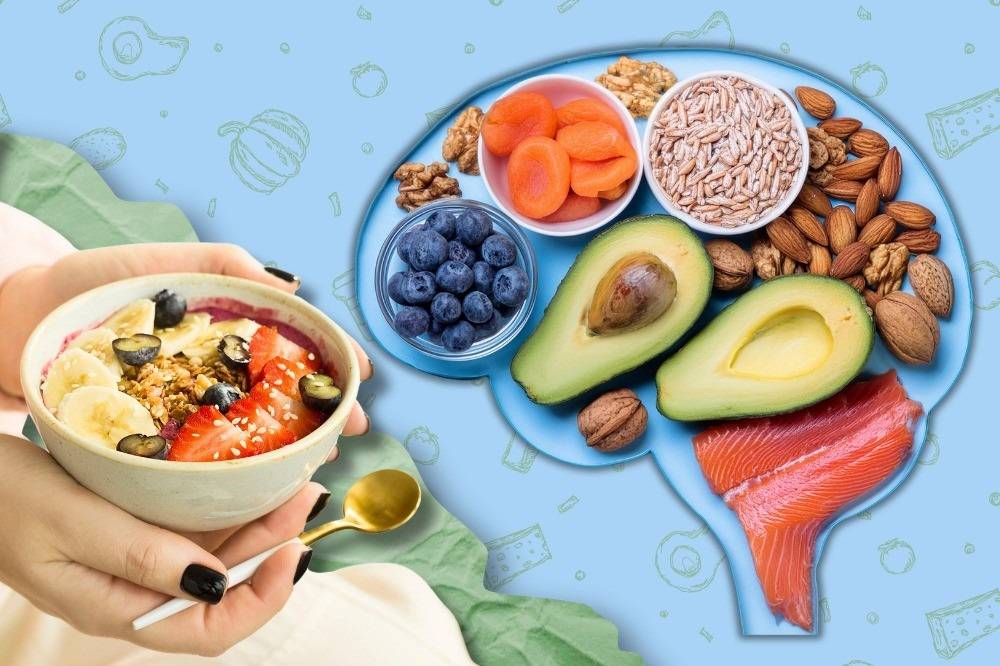 THE health of your gastrouintestinal tract has a direct correlation to the health of your mind.
THE health of your gastrouintestinal tract has a direct correlation to the health of your mind.
Around 95 per cent of serotonin (the neurotransmitter that regulates mood, pain, and sleep) is produced in a person’s GI tract. The GI tract is, in turn, lined with nerve cells (neurons) that are highly influenced by the flora within your intestinal microbiome.
'Good' bacteria, according to Harvard Health: "provide[s] a strong barrier against toxins and 'bad' bacteria; they limit inflammation; they improve how well you absorb nutrients from your food; and they activate neural pathways that travel directly between the gut and the brain."
The growth of this bacteria depends on what you feed them. Traditional diets that consist of whole foods, unprocessed grains and fermented foods have been found to reduce the risk of depression by about 30 per cent (as compared to the typical 'Western' diet).
FOODS YOU SHOULD EAT
Here are some examples of foods to incorporate into your diet for better mental wellbeing.
Whole grains: Wild or brown rice, oats, beans, and legumes contain complex carbohydrates to slow glucose production and keep blood pressure steady (as rapid spikes are associated with some mental health disorders).
They also help you absorb tryptophan, which can alleviate symptoms of depression and anxiety over time.
Healthy fats: Found in oily fish (such as salmon or mackerel), avocados, and nuts and seeds, these foods are high in omega-3 and omega-6 acids, which our brains need.
Colourful fruits and vegetables: Leafy greens such as kale or spinach supply folate, which can deter depression, dementia and insomnia. They also contain omega-3, magnesium and other nutrients.
Lycopene, which gives tomatoes their red colour, is associated with concentration, attention and logic. Yellow and orange plants (like carrots, pumpkins, and squash) provide beta-carotene, which can improve cognitive function.
Wherever possible, opt for a wide variety of colourful produce; this will provide a well-rounded balance of vitamins and minerals.
Fermented food: Yoghurt, kimchi or kombucha contain active cultures that help your body break down and absorb nutrients from the food you eat, making digestion of those foods more efficient.
Dark chocolate: Switching from milk to dark chocolate can provide you with polyphenols, flavonoids and other antioxidants, which can boost mood. The ideal ratio is 85 per cent dark chocoloate. However, despite being lower in sugar than milk chocolate, it should still be consumed sparingly.
Caffeine: Similarly, in low doses, caffeine can boost dopamine and improve mood. However, experts suggest small, frequent doses (for example, 20mg of caffeine at a time). Too much caffeine can lead to insomnia and anxiety.
FOODS YOU SHOULD AVOID OR SKIP
Conversely, here are some foods to limit for the sake of your mental health:
Sugar: While it can be tempting to reach for sugary food when feeling stressed, sugar actually decreases the brain’s ability to deal with stress. It also has a direct relation to depression. Try to limit soda, fruit juice, energy drinks, desserts, and even unrefined sugar like maple syrup or honey.
Artificial sweeteners: Similarly, sweeteners like aspartame have been linked to anxiety and depression. Rather than diet soft drinks, it may be better to choose unsweetened beverages such as tea or water.
Saturated and trans fats: Sometimes called ‘hydrogenated oil’, these fats are found in processed food (such deep fried food, margerine, and palm oil) and do not provide the same benefits as healthy fats. Instead, they are linked with depression, lethargy and low mood.
Refined carbohydrates: While wholewheat bread or pasta is loaded with complex carbohydrates that can be good for mental health, white flour and white rice can have the opposite effect on depression and anxiety. However, this is an easy fix; consider switching some of your carbohydrates for their whole-grain counterparts.
Alcohol: Albeit fine in moderation, alcohol is a depressant. In high doses, it can disrupt the chemical balance in our brains by depleting neurotransmitters. Limit consumption to one drink a day for women, or two a day for men.
Now that you know what foods to avoid, it's time to take another look at your own diet. Curious to discover just how much sugar you are consuming? Tap here for more details !